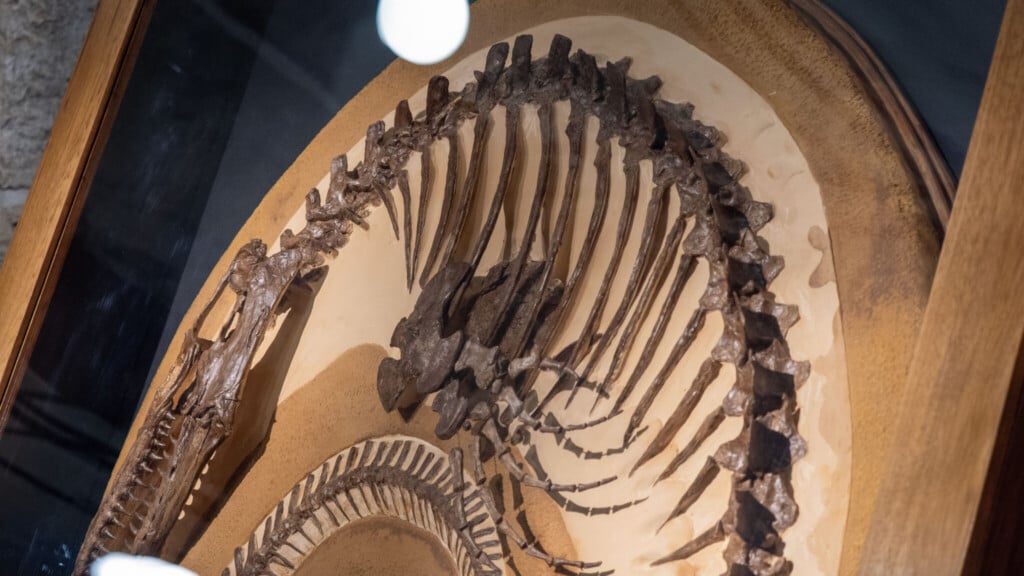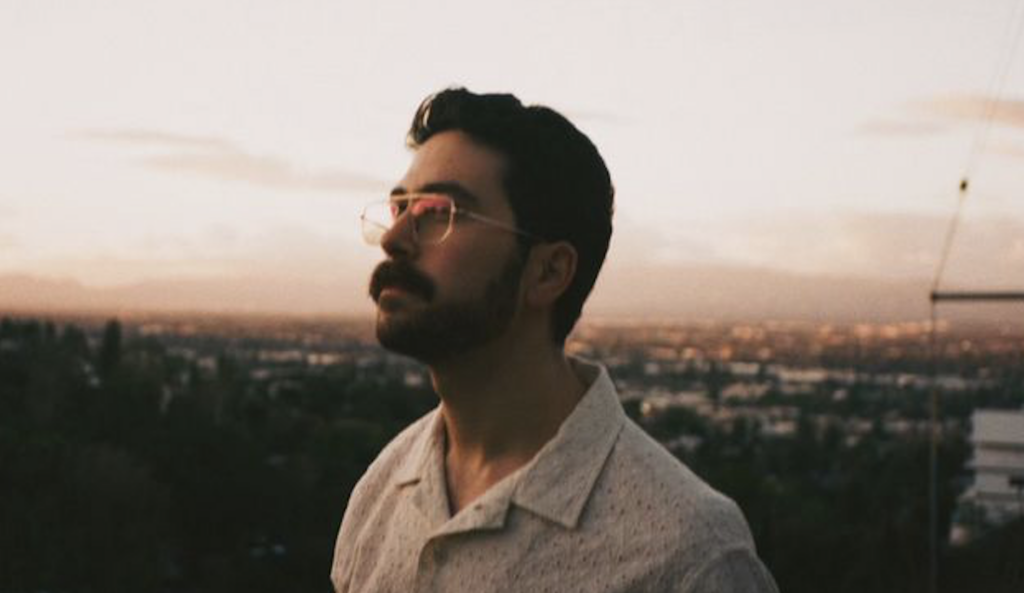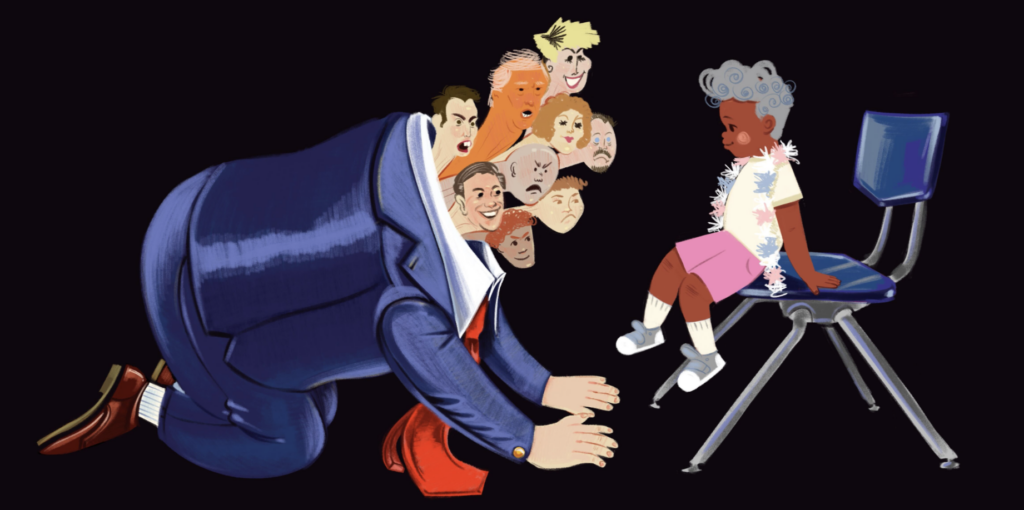The Coterie links past to present in the compelling true story The Nine Who Dared
 In a racially charged political year, the Coterie Theatre’s production of The Nine Who Dared: Courage in Little Rock — an absorbing true account of court-ordered school desegregation in the late 1950s — feels timely, and sadly apropos.
In a racially charged political year, the Coterie Theatre’s production of The Nine Who Dared: Courage in Little Rock — an absorbing true account of court-ordered school desegregation in the late 1950s — feels timely, and sadly apropos.
The play’s opening weekend coincided as well with the day, 59 years ago, when nine black students first tried to attend an all-white high school in Little Rock, Arkansas, only to be blocked by that state’s National Guard. (Nine students were selected from 75 applicants, the initial number considered too many.) It had been three years since the U.S. Supreme Court’s Brown v. Board of Education decision, which integrated public schools. Yet, it took the 101st Airborne Division, ordered in by President Eisenhower, for these nine students to gain access to Little Rock’s Central High.
And once the kids were inside the building, that show of force couldn’t ensure their safety.
“Emotions are running high,” says the Rev. Crenshaw when the 75-minute play begins. Vice Principal Huckaby won’t expel white students who threaten, harass or harm the new students — she doesn’t want to further anger or provoke the white mob surrounding the school. A school-board member resists compliance with the law.
“Occupied territory,” Arkansas Gov. Faubus says of his state. “I will not be a party to any attempt to force acceptance of change to which the people are so overwhelmingly opposed.”
Little Rock’s school administrators, school-board members and community leaders are trying to decide what to do. Is the fight worth it? they ask. Should they wait until the following school year, when the situation calms?
Anyone with access to Google can tell you how The Nine Who Dared will ultimately resolve. But it’s the details of these students’ experiences — and the social environment at the time — that involve us here. In director Jeff Church’s hands, crisp characterizations emerge from scenes that unfold in flashback, sharply drawn and swift-moving vignettes that seamlessly shift in location and time.
Also seamless is Church’s commingling of audience and actors, with action staged in the aisles and performers positioned in the seats. Written by Wendy Lement, Derek Nelson and Cliff Odle, of Boston’s Theatre Espresso — a company that “creates interactive dramas that bring historical debates and dilemmas to life for students” — the play engages in a literal way, framed within a town-hall format that begins and ends with questions for attendees to consider. It’s public forum meets storytelling.
The latter is boosted by efficient casting: Ten versatile actors fluidly portray numerous small roles as well as primary players. The nine students at the forefront are distilled into a tidy three: Melba Patillo (Dianne Yvette), Ernest Green (Donovan Woods) and Minnijean Brown (Rasheedat “Ras” Badejo). These actors (who briefly morph into the other students in a clever and quick introduction) do strong work as teenagers who must steel themselves against what they’ll face, and find inner strength as they endure harassment, slurs and physical attacks.
Sherri Roulette-Mosley projects passion as civil rights activist and NAACP leader Daisy Bates, at the center of the fight for integration. Joseph Fournier gives an authoritative voice and presence to President Eisenhower and Chief Justice Warren, as well as to the Georgia governor, a teacher who looks the other way, and others. And as Arkansas Gov. Faubus, a forceful Thomas A. Waller reflects institutionalized bigotry and obstinance.
Michael DeCoursey oozes threat as the white student Andy (and, among his other roles, exhibits compassion as Ben Fine, a journalist “reassigned” for coming to the aid of one of the nine). Ron Lackey grounds the production as the Rev. Crenshaw and ably portrays Thurgood Marshall, Kenneth Clark (the psychologist whose research supported desegregation) and other characters. And Leah Swank-Miller and Ariel Talacko do solid work as the vice principal and school-board member, respectively, as well as other parts.
Period clothing helps transport us to the late 1950s (costume design by Georgianna Londré Buchanan), and the sounds of the mob at the school leave no doubt of the dangers there (sound design by David Kiehl). Lighting (by Jarrett Bertoncin) adds an additional layer to the drama.
The day I saw The Nine Who Dared, the production achieved its desired effect: In the town-hall discussion that followed the show’s denouement, the middle- and high-school students in attendance had more questions and comments than time would allow. Current events have lent the play a new immediacy, yet it’s the dynamic story of The Nine Who Dared that continues to speak to all of us today.
The Nine Who Dared: Courage in Little Rock
Through October 21 at the Coterie, Crown Center, 2450 Grand, 816-474-6552, thecoterie.org




